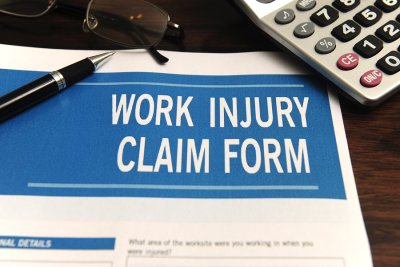-
Don’t Let These Workers’ Compensation Myths Interfere with Your Rights
Workers’ compensation provides invaluable protection for employees, but it isn’t generally well-understood. It’s often confusing for injured workers to navigate the claims process and determine if they’re being treated fairly or not. This is why it’s advisable for Baltimore-area workers to contact a workers’ compensation law firm. During a consultation, a workers’ compensation attorney can help injured workers find out the truth about the claims process.

Myth: Part-Time Employees Aren’t Covered
Part-time employees typically miss out on work-related benefits such as retirement plans and health insurance, but they are covered under workers’ compensation. However, as your workers’ comp attorney can advise you, independent contractors and freelancers are not covered.
Myth: Workers’ Compensation Only Covers Medical Bills
Your workers’ compensation attorney can help you with the claim for your medical coverage. The insurance carrier must pay for diagnostic tests, hospitalizations, and medical treatments, provided they arise directly from your on-the-job injury. However, workers’ comp also covers other losses. It will not pay the full amount of any lost wages you incurred during your recovery, but you should be eligible to obtain a portion of them. Income replacement benefits are available to workers who miss more than three days of work. If you miss more than 14 days of work, you can receive payment for the first three days of work in addition to the subsequent work days.
Myth: The Insurer’s Decision is Final
In some cases, the workers’ compensation insurance carrier may deny a claim. Claims may be denied if an injury is suspected of being caused intentionally or if it is thought that the injury did not arise out of the course of employment. Receiving notice of a denied claim does not automatically mean that you are liable for the medical costs, however. You have the right to hire a workers’ compensation attorney to file an appeal and represent you at the hearing.
Myth: Workers’ Compensation Only Offers Temporary Benefits
Workers’ comp does offer temporary disability benefits, but in the case of a catastrophic injury, long-term benefits may be available . Generally, you will be asked to undergo a medical evaluation to establish the nature and extent of your disability.
““
-
Frequently Asked Questions
- What is workers’ compensation?
Workers’ compensation is a system set up to provide medical treatment, lost wages, and permanent disability (if any) to workers who are injured on the job. In workers’ compensation, it doesn’t matter whose “fault” the injury was, whether it is the employer’s, a co-worker, the injured party’s fault, or no one’s fault.
- What kind of matters are workers’ compensation?
There are two basic types of workers’ compensation claims. The first is called an accidental injury – that occurs when you are at work and something unusual or different happens causing you to suffer an injury . It doesn’t have to be the traditional meaning of an “accident.” It could be simply bending down to pick up a box and you injure your back, or, it can be an intentional act, such as a robbery, which is certainly not a traditional accident.
The second type of claim is called an occupational disease. These are problems that are known to develop in certain occupations. The most common ones that we deal with are carpal tunnel syndrome (a wrist condition), tendonitis in the elbow (also known as “tennis elbow”), and exposure to various chemicals and irritants.
- What am I entitled to under workers’ compensation?
You are entitled to get paid lost wages at two-thirds of your average weekly wage (this payment is tax free) while you are medically unable to work. You are entitled to have all your medical bills paid by the workers’ compensation insurance company (or self-insurer) under a Fee Guide. You are not personally responsible for any bills that exceed the Fee Guide.
If you are unable to return to your previous employment, you are entitled to vocational assistance to help you find new employment.
Finally, if you have a permanent condition, you are entitled to get paid what is called permanent partial or permanent total disability based on your medical condition. For permanent disability, you are evaluated by a physician selected by your attorney and one selected by the insurance company.
- Why do I need an attorney in a workers’ compensation claim?
There are many Rules and Regulations which apply determining how you get paid, what you get paid, and when you get paid. There are also issues dealing with medical treatment as to what you are entitled to. The insurance companies are required to have lawyers representing them when there is a dispute and there is going to be an issue heard. Because of the technicalities in workers’ compensation law, you should certainly have an attorney represent you.
- How much does an attorney charge?
All attorneys charge the same in workers’ compensation as fees are set by the Workers’ Compensation Commission. There is no attorney’s fee unless the attorney is successful in getting you paid lost wages that the Employer and/or Insurer will not pay voluntarily and if you have a permanent disability. There is no charge for filling out forms or meeting with clients.
For more information, call Jack J. Schmerling, Esquire, at 410-787-0022.
RECENT POSTS
categories
- Uncategorized
- Worker's Compensation
- Attorney Fees
- Auto Accident Injury Whiplash
- Attorney Review
- Personal Injury
- Social Security Disability
- DUI
- Workplace Injuries
- Auto Accident
- Workers Compensation Claims
- Permanent Disability
- Infographic
- Drunk Driving
- Wrongful Death
- Works in Maryland
- Uninsured Motorists
- Motorcycle Crashes
